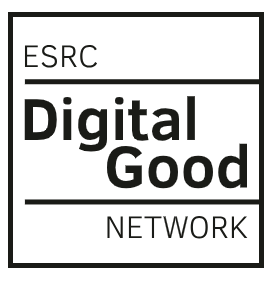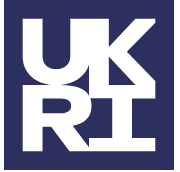Digital Good Research Fund ‘Building the digital good’

The aim of the Digital Good Network is to enhance our collective understanding of what a good digital society looks like and how we get there.
In the third year of the network, we invite research proposals that focus on ‘Building the digital good.’
Proposals should build on our prior research and our discussion paper Evaluating the societal outcomes of digital technologies: building blocks and reflexive questions.
Deadline to apply: 26 June 2025 16:00 UK time
What we’re looking for
Our third Digital Good Research Fund call will support work that focuses on ‘Building the digital good’. The call focuses on the second part of our central research question: what does a good digital society look like and how do we get there?
‘Building the digital good’ invites proposals that build on, engage with, test and challenge the ideas in our discussion paper Evaluating the societal outcomes of digital technologies: building blocks and reflexive questions.
The discussion paper presents the emerging themes from our research so far, which we describe as the ‘building blocks’ for a good digital society. The building blocks inform a set of reflexive questions for evaluating whether digital technologies have good societal outcomes, which we present in the discussion paper. The questions aim to initiate a conversation about whether and how we can evaluate ‘the digital good’ – a phrase we use to talk about the characteristics of a good digital society. As such, they are not set in stone. We want interested stakeholders to think with us about the best reflexive questions for building and evaluating the digital good, and to work with us over the next two years to test out, challenge, iterate and revise them. This call invites you to join us in that process.
‘Building the digital good’ invites proposals that build on or advance our research findings and outputs.
Proposed projects may do one or more of the following:
- generate or rework digital technologies with the intention of achieving the digital good
- explore how the digital good might be built in to specific technologies, contexts and domains
- consider the role of diverse communities, sectors and organisations in building the digital good
- test methodological innovations for building the digital good.
We welcome applications which examine, apply or demonstrate particular approaches to building the digital good. Whilst we are not prescriptive about which methods and approaches projects should use to build the digital good, we anticipate that practical or engineering or design-led approaches may be appropriate for this call.
To understand what we mean when we use the term ‘the digital good’ and how we are thinking about it, you may find it useful read our recent paper, What Do We Mean When We Talk About a Good Digital Society?
We have reviewed the disciplines, methodologies, teams and topic areas of existing Digital Good Network research, and have identified some gaps we would like to fill to enable us to meet our objectives.
As a result, we encourage applications which:
- use quantitative or computational methods
- are led by disciplines currently underrepresented in the network including psychology, computer science and economics
- use secondary data (ie, engage with existing data or datasets, rather than creating new ones).
To read about the projects we have funded and research being undertaken by the Digital Good Network’s management team, please visit our research page. But please note, we welcome novel proposals which include disciplines, methods, teams and topic areas that are currently not represented in our existing portfolio of research, and that address issues we haven’t thought about!
Funding available
We will dedicate up to £300,000 (£240,000 at 80% fEC) to funding applications that respond to this call. We will fund multiple projects and the maximum funding that each project can apply for is £75,000 (£60,000 at 80% fEC).
In keeping with standard UKRI funding procedures, we support projects at 80% of the Full Economic Costs. Lead institutions are expected to make up the remaining 20%.
There are exceptions to this rule. The below groups can claim eligible costs at 100% of Full Economic Cost:
- Non-academic organisations (i.e. UK business, third sector and government bodies) (in accordance with the ESRC project co-leads from UK business, third sector or government bodies policy)
- International organisations (in accordance with the UKRI International Co-Lead Policy and Project co-lead (international) policy guidance). NB: Where the individual is recruited and employed by the international RO to support the project co-lead (international), these direct costs will be paid at 100%. In cases where the individual is employed by a UK organisation but seconded to the international RO, costs will be paid at 80%
Justification for exceptional funds at 100% of the Full Economic Costs should be included in applications). Please note individuals from these organisations cannot be Project Leads.
Further funding guidance for project co-leads (international): Read mo
Further information and advice on eligible costs can be found in the ESRC’s Research Funding Guide.
Eligibility criteria
Digital Good Network Management Team members are not eligible to apply for this funding but current or previous Digital Good Research Fund grant holders are eligible to apply.
The Project Lead must be based at a UK research organisation eligible for UKRI funding. Teams can also include:
- eligible project co-leads (international) (in accordance with the UKRI International Co-Lead Policy and Project co-lead (international) policy guidance)
- project co-leads from UK business, third sector or government bodies (in accordance with UKRI’s policy on working with other organisations)
- eligible public sector research establishments
- internationally or UK based Project partners (UKRI define partners as collaborators who are not paid through the project, and who contribute in-kind or other resources to the project).
We fund in accordance with ESRC’s Research Funding Guide.
Scope
Projects and applications must:
- fit with the call’s theme ‘Building the digital good’
- align with the Digital Good Network objectives and must address at least one of our three key societal challenges: equity, sustainability or resilience
- meet our objective of building an interdisciplinary network by ensuring that teams are interdisciplinary. By interdisciplinarity, we expect discrete disciplines to work together (eg, psychology and cultural studies), rather than different sub areas within one discipline (eg, economic sociology and historical sociology);
- meet our objective of effective engagement with policy, industry, practitioners, communities or civil society, by ensuring that projects connect researchers with relevant communities or organisations to address challenges relating to the digital good
- meet our objective of building research capacity and upskilling future digital society research leaders, by ensuring teams incorporate at least one named early career researcher (ECR) with a leadership role in the project and a clear plan for their development. This plan must be described in the application. By leadership role, we mean that the ECR(s) take some intellectual ownership of the project, in its design and execution. Successful applications will centre the ECR(s) in more than just data collection (eg, as a research assistant). In terms of how we define an ECR, we do not consider years post-PhD or job title to be a sole marker of career progression. We will therefore ask you to self identify any ECRs in your team, on the application form, and give a brief justification of why they identify as an ECR. Reviewers will then take this information into account when reviewing against the ‘teams’ criterion (please see below).
How we will assess your application
Upon receipt, applications will be checked against the call guidance and any applications that are not eligible will be desk rejected.
Applications will each be reviewed by two members of the network’s core team and College of Experts. Principles of peer review, including relating to conflicts of interest, will be strictly adhered to.
Scores will then be collated and ranked and any discrepancies discussed. Members of the Directorate and/or Core Team will make a final decision on which proposals to fund based on a) this ranking, b) a portfolio approach (ensuring diversity of disciplines, topics and approaches) and c) alignment to the Digital Good Network’s aims.
If all available funds are not distributed in a call, they will be rolled forward to the subsequent call.
Review criteria: Read more
Conditions of funding
It is a condition of funding that Project Leads commit to a member of their team contributing to the network by attending the annual project summit event associated with the call round in Spring 2026 (dates tbc) AND making a contribution to the Digital Good Network training programme (eg, giving a talk or running a workshop) OR Digital Good Network website content (eg, a blogpost or short video).
The costs of making these contributions will be covered by the network and do not need to be included in your proposal.
We also require that successful project teams:
- engage in appropriate data management planning and ethics approval processes and are willing to show evidence to this effect if requested, in line with our research data policy
- meet with the Digital Good Network team at the end of the funded period to discuss the engagement and impact elements of the project.
Example terms and conditions can be found here.
Timeline
- Call launch: Tuesday 11 March 2025
- Deadline for application form submissions: Thursday 26 June 2025 16:00 UK time
- Deadline for expression of interest to attend the optional online ‘sandpit’ team formation event: Thu 27 March 2025 16:00 UK time
- Optional online ‘sandpit’ team formation event: Tuesday 1 April 2025 13:00 UK time
- Support webinar for early career researchers: Tuesday 29 April 202510:00 UK time
- Decisions communicated to applicants: September 2025
- Research cannot start before: 15 October 2025
- Research must be complete by: end of August 2026
- Network building event for funded research teams: Spring 2026
How to apply
Download the Digital Good Research Fund 2025 Application Form
To apply, email your application form and attachments in one .pdf document to applications@digitalgood.net by 16:00 (UK time) on Thursday 26 June 2025.
If you need an alternative format please email info@digitalgood.net to discuss your requirements.
Supporting documentation:
- As part of your application, we will ask you and your team to fill out an Equity, Diversity and Inclusion Monitoring form. The information collected in this form will help us work towards our goal of building an inclusive and broad network (link given on application form).
- We will require a one page CV from the Project Lead and all named Project Co-Leads.
- We require letters of support from each project partner.
- We require a letter of support from the Project Lead's institution.
Please consult the application form for full details.

